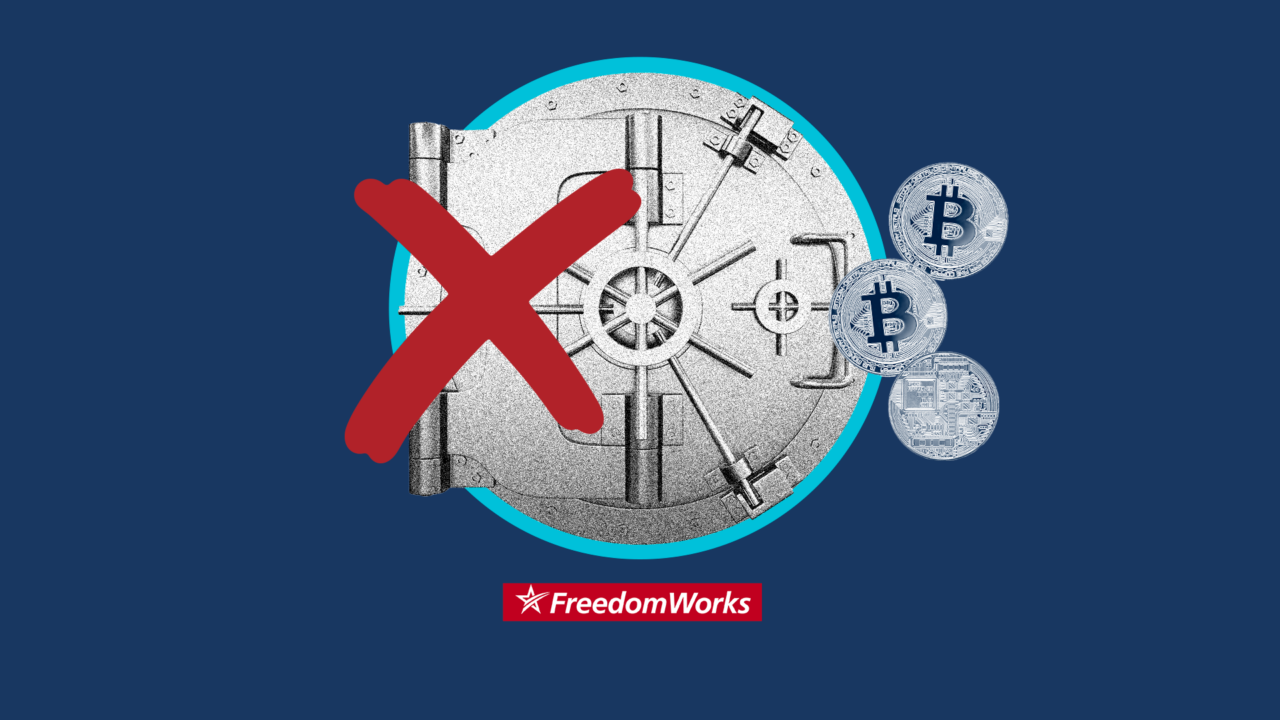FreedomWorks’ Bill of the Month for February 2022: H.R. 6415, A bill to prohibit the Federal Reserve from issuing Central Bank Digital Currency (CBDC) directly to individuals

The rise of digital assets is a revolution in the digital and financial world; for the first time, individuals can make direct money payments across the globe at the speed of the internet. This rise is prompting countries worldwide to pursue Central Bank Digital Currency (CBDC).
A CBDC is a hazardous tool that could allow governments to control and monitor the financial transactions of their citizens. Conservatives must get out in front of CBDC and oppose its development in the United States.
That is why Rep. Tom Emmer introduced H.R. 6415, a bill prohibiting the Federal Reserve from issuing a CBDC directly to individuals, FreedomWorks’s February 2022 Bill of the Month.
The Details
What is a CBDC
- “Central Bank money” is money that is a central bank’s liability. In the United States, our central bank is known as the Federal Reserve. Its stated purpose is to conduct United States monetary policy to promote employment, stable prices, and moderate long-term interest rates in the U.S. economy.
- Currently, there are two forms of central bank money. They are Federal Reserve notes (paper dollars) and digital balances held by commercial banks at the Federal Reserve.
- A CBDC is a digital form of central bank money. This would be widely available to the public and used as a digital dollar.
- A CBDC is fundamentally different from other instances where Americans have had digital money. Unlike existing digital money, CBDC would be a liability of the Federal Reserve, not commercial banks. Essentially this would require Americans to open an account with the Fed to access a United States CBDC.
- This would significantly increase the federal government’s role in the digital economy, essentially centralizing data from digital transactions.
- If implemented in the United States, a CBDC would allow the Federal Reserve to mobilize into a retail bank.
- More than 60 countries are currently exploring some form of CBDC. The most notable is China, which is studying a digital yuan. With a digital currency, the Chinese government would have instant knowledge and control over its citizens’ money.
- In January of 2022, the Federal Reserve released a paper exploring a CBDC and accepting public comment.
- CBDC is more aptly named Central Bank Digital Control and opens the door to digital authoritarianism.
Why it Matters
One of the most significant features that draw people to digital assets is that they are decentralized. There is no central authority that manages the supply and value of most digital assets. Instead, most digital assets democratize their management amongst their users. A CBDC runs counter to this premise.
By centralizing personal financial data, a CBDC leaves Americans’ information vulnerable to attack by malicious actors and surveillance by their government. The United States cannot travel down the same road of digital authoritarianism as China.
We are excited to recognize Rep. Tom Emmer’s bill to prohibit the Federal Reserve from issuing a CBDC directly to individuals, H.R. 6415, as our Bill of the Month for February 2022. We hope to see more lawmakers join to support protecting Americans’ financial privacy.



